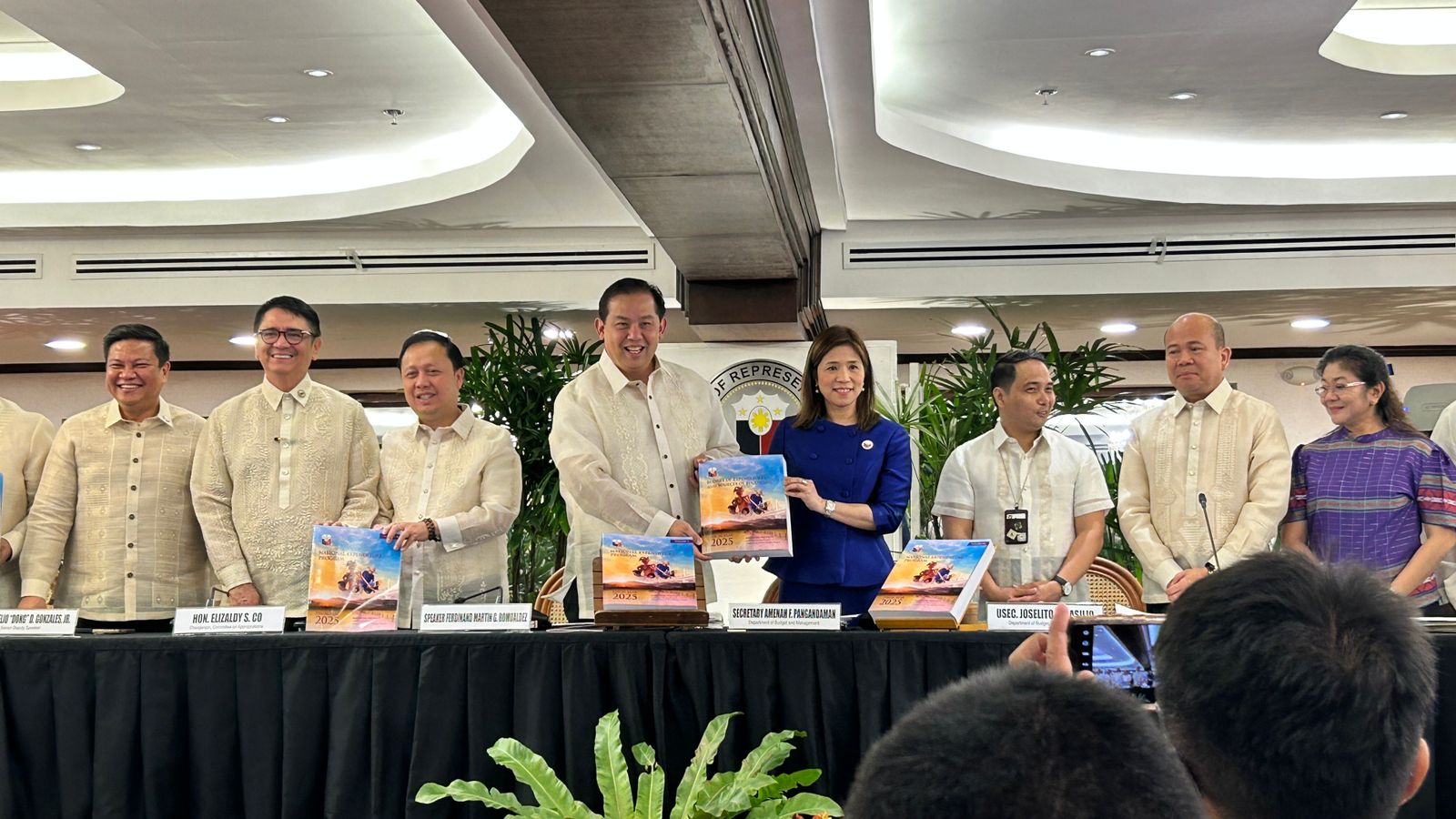
The Department of Budget and Management turns over to the House of Representatives the proposed national budget for 2025.
MANILA, Philippines — Allocations for confidential and intelligence funds (CIFs) in the proposed 2025 national budget went down by 16 percent compared to the 2024 General Appropriations Act (GAA), Budget Secretary Amenah Pangandaman said on Monday.
In a media briefing after the Department of Budget and Management (DBM) turned over the National Expenditures Program (NEP) to the House of Representatives, Pangandaman said P10.29 billion of the P6.352- trillion budget for 2025 was allocated for CIFs.
She said it is lower than the P12.37 billion allocated for CIFs in the 2024 GAA.
“The DBM got a total proposed P11.39-billion CIF for 2025, of which confidential is P5.22 billion, intelligence is P6.17 billion. But we only approved a P10.29-billion CIF. The breakdown is P4.37 billion for confidential expenses and P5.92 billion for intelligence expenses,” she added.
Pangandaman also provided a breakdown of the CIF allocation per agency or sector, sans the P4.5-billion CIF set aside for the Office of the President.
- Armed Forces of the Philippines – P1.70 billion
- National Intelligence Coordinating Agency – P991.2 million
- Philippine National Police – P806.03 million
- Philippine Drug Enforcement Agency – P500 million
- Department of Justice (Office of the Secretary, Bureau of Immigration, National Bureau of Investigation, and Office of the Solicitor General) – P579.4 million
- Department of National Defense (including Armed Forces of the Philippines General Headquarters,Philippine Army, Philippine Air Force, Philippine Navy, Office of the Secretary) – P1.8 billion
- Department of Finance (Bureau of Customs and Bureau of Internal Revenue) – P79.5 million
- Department of Transportation (Office of the Transportation Security and Philippine Coast Guard) – P405 million
- Anti-Money Laundering Council – P7.5 million
- Games and Amusement Board – P4 million
- National Security Council – P250 million
- Office of the Presidential Adviser on Peace, Reconciliation and Unity – P60 million
- Commission on Audit – P10 million
- Office of the Ombudsman – P51.4 million
- Commission on Human Rights – P1 million
Pangandaman explained that the CIF allocation for the 2025 NEP is lower than in 2024 because the DBM adopted the practice initiated by the House, where CIFs of civilian agencies that do not have a surveillance function were removed.
“If you’ll notice, based on the breakdown that we gave, only the agencies mentioned can have confidential and intelligence funds, that’s why it decreased by 16 percent,” she added.
After the discussions on the 2024 national budget, the House removed confidential funds worth P1.23 billion from key agencies like the Office of the Vice President (OVP), Department of Education, Department of Information and Communications Technology (DICT), Department of Foreign Affairs (DFA), and Department of Agriculture (DA).
READ: House gives zero confidential funds to OVP, DepEd, DICT, DFA, DA
Most of the confidential funds were reallocated to agencies securing the West Philippine Sea.
READ: How House removed, reduced the confidential funds of gov’t agencies
The DBM handed to the House a copy of the NEP, which contains the budget allocations made by the executive branch. Under the 1987 Constitution, Congress can change allocations to items in the NEP, as long as it would not go above the ceiling set by the executive.
The submission of the proposed 2025 budget to Congress is the earliest under President Ferdinand Marcos Jr.’s term, with the executive branch handing the NEP to the House only seven days after the State of the Nation Address (Sona).
Under the 1987 Constitution, the executive branch is given 30 days after the Sona to submit the NEP to Congress.
READ: DBM submits proposed P6.3T national budget for 2025 to House
After the turnover, lawmakers usually spend days reviewing the NEP before the appropriations panel starts deliberations at the committee level.
For the 2024 budget, committee-level discussions started on August 10, or eight days after the DBM turned over the NEP.
After the committee approves its version of the NEP, it will be contained in the General Appropriations Bill (GAB), and the discussions will be held during plenary sessions.
Once the House approves the GAB, it will be forwarded to the Senate for another set of deliberations.
A bicameral conference committee is often convened to thresh out differences in the House and the Senate’s versions of the GAB.
After differences are reconciled, the bill will be forwarded to the President for his signature or veto.